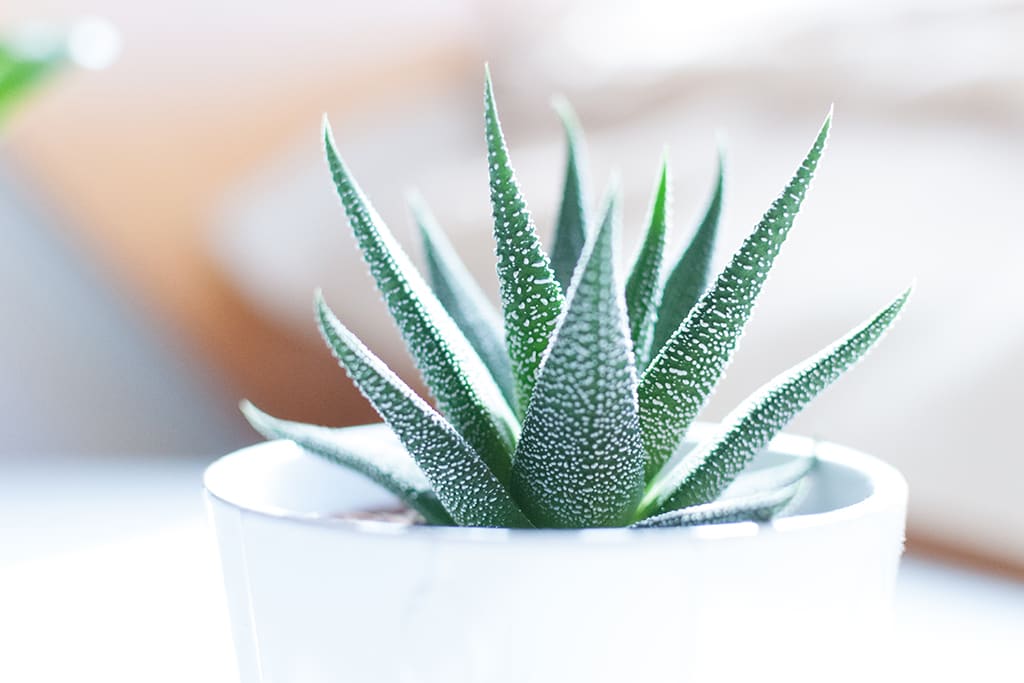5 natural ways to beat the January blues

After an indulgent festive season filled with parties, presents and sweet treats, returning to the ‘back to work’ routine can often leave us feeling blue.
In the midst of the dark days of winter and with Blue Monday (21st January) upon us, Dobbies Garden Centres has partnered with leading nutritionist Lily Soutter to provide her top five secret health hacks, some of which may be on your own doorstep.
Many of us know that being close to greenery and nature brings a sense of calmness and ease to our surroundings. Houseplants are an easy and stylish way of bringing a touch of the outdoors into our home. Not only do they help improve air quality and lift mood, but plants have specific health benefits of their own.
So this year, go green for Blue Monday with Lily’s top plant picks to keep you feeling merry and bright for 2019:
1 Aloe Vera
Soothing
What it does
This cactus-like plant is easy to grow as it thrives indoors. The leaves contain special aloe gel, and animal studies have shown that when applied topically it can help with wound healing. Research also suggests that aloe gel comes with special antibacterial compounds called anthraquinones which are responsible for minimising infection. Whilst more research still needs to be conducted on the health benefits of aloe vera, there are numerous topical treatments on the market for soothing the skin and reducing inflammation, which may be of benefit when it comes to minimising sunburn, spots or even psoriasis.
How to use
Try snipping off an aloe leaf close to the stem and then rub the gel end on the area you want to treat. You can also try splitting the leaf lengthwise to and scooping out the contents with a spoon to make the most of the gel.
Read more: Gardening – the latest fitness trend?
2 Lemon Balm
Calming, stress and anxiety reduction
What it does
The lemon balm plant (Melissa officinalis) is a member of the mint family, which comes with a beautiful lemony aroma. It has traditionally been used to improve cognition as well as reduce stress and anxiety. Studies have shown that supplementation with lemon balm may help to induce a sense of calmness which may be of benefit for those struggling with anxiety.
How to use
It is important to note that much of the research around lemon balm has been conducted on concentrated extracts incorporated into supplements, or via inhalation of the essential oil.
Despite this, lemon balm leaves have been used in traditional medicine for over 2000 years and can be easily be incorporated in teas, potpourris, cocktails, cooking, salads, cocktails and anything you think will benefit form a herbal lemony flavour.
3 Lavender
Stress reduction and sleep
What it does
Lavender is the plant of choice when it comes to getting a more restful night sleep. In fact, research has shown improvements in sleep quality in those who are struggling with stress and insomnia, with effects being seen from both oral supplements and aromatherapy.
Whilst lavender tends to be an outdoor plant, growing this beautifully scented plant indoors can be well worth your time. Ensure that your pot plant has access to bright daylight and fresh air.
How to use
Before bed, simply take a few deep breaths, inhaling the relaxing floral scent of your lavender plant for a calmer more restful nights sleep. You can also try drying some lavender buds to make potpourris, you can then add to a cotton bag and leave on your pillow for scented sheets, or sprinkle with an essential oil.
Read more: winter aromatherapy – what seasonal scents can do for your wellbeing
4 Chilli
Pain relief
A compound called capsicum is responsible for chilli’s spicy nature and comes with pain relieving properties. In fact, the active ingredient in topical preparations of capsicum is approved by the Food & Drug Administration for pain relief induced by rheumatoid arthritis, osteoarthritis, psoriasis, shingle and even nerve pain due to diabetics (diabetic neuropathy).
There has also been interesting research conducted on potential metabolism boosting and fat burning properties of chillies, however the evidence is mixed and more research is needed.
How to use
Once your chillies are harvested you can use fresh, or freeze or dry for use at a later date. Chillies make a perfect replacement for salt for a flavoursome punch to your food. Try adding to soups, curries, stews, dressings or top on your avocado toast!
5 Peppermint
Digestion
What it does
Peppermint contains essential oils including menthol, and limonene, which is responsible for its cooling properties and minty scent.
Not only does a fresh peppermint plant make a perfect addition to any kitchen, but it comes with health benefits too! The active compound in peppermint is called menthol, which may help to improve airflow when our sinuses are blocked. What’s more, there has been numerous studies to show that supplementation with peppermint oil for two weeks can help to reduce symptoms of irritable bowel syndrome (IBS) such as gas, bloating and indigestion.
How to use
Whilst most of the research around peppermint has been conducted on concentrated and extracted peppermint oil, fresh peppermint tea can still provide the minty menthol scent and is be a refreshing hot drink to soothe the stomach.











